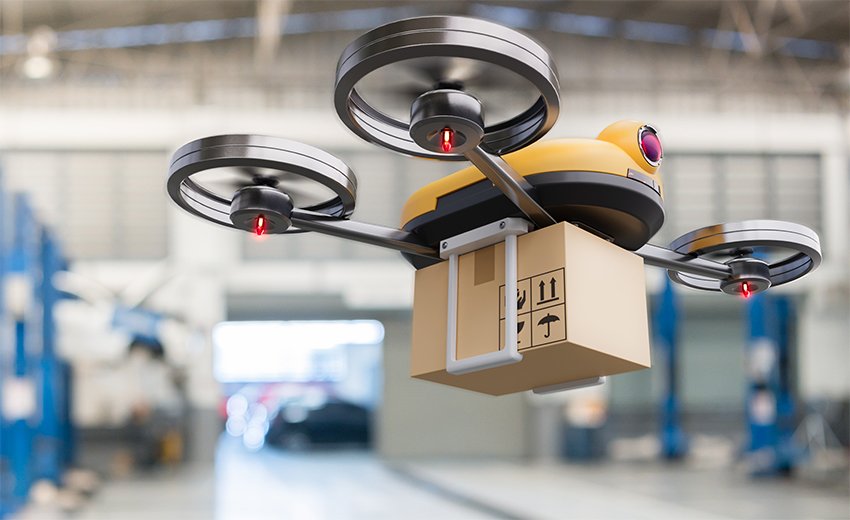The use of drones in delivery services is rapidly transforming how goods are transported. Drones, or unmanned aerial vehicles (UAVs), offer a range of benefits that are revolutionizing the logistics industry. From faster delivery times to cost savings, drones are shaping the future of delivery services.
Enhancing Delivery Speed
One of the most significant advantages of drones in delivery services is their ability to speed up the process. Traditional delivery methods, such as trucks and vans, are often slowed down by traffic, road conditions, and human limitations. Drones, on the other hand, can bypass these obstacles by taking to the skies. They can follow direct routes to their destinations, significantly reducing delivery times. For time-sensitive deliveries, such as medical supplies or emergency items, drones offer an unparalleled solution.
casinos en ligne
Christography.com likely showcases photography work, potentially with a focus on Christian themes or perspectives. While visitors appreciate visual storytelling and artistic expression, some might also enjoy online entertainment during their personal time. For those interested in exploring online gaming platforms, more information can be found about casinos en ligne. This resource offers a variety of online casino games for adults seeking a different form of engaging leisure.
Reducing Delivery Costs
Drones can also reduce the costs associated with delivery services. Operating drones requires less manpower compared to traditional delivery methods, which can translate to significant savings for companies. Additionally, drones consume less energy than large delivery vehicles, contributing to lower operational costs. As drone technology advances and becomes more affordable, the cost savings for businesses will only increase.
Capturing Life’s Moments and Enjoying Every Spin
Christography celebrates the beauty of everyday life through the lens of photography, turning ordinary scenes into unforgettable visuals. Just as photography requires timing, focus, and creativity, so does choosing how to unwind and have fun. For those seeking a bit of excitement off-camera, joka casino online roulette offers a thrilling and strategic way to enjoy digital entertainment. It’s all about perspective, whether capturing a shot or making one.
Expanding Access to Remote Areas
Drones are particularly beneficial in reaching remote or hard-to-access areas. Traditional delivery vehicles may struggle to navigate rugged terrain or distant locations, leading to delayed deliveries. Drones can easily fly over challenging landscapes, delivering goods to places that would otherwise be difficult or impossible to reach. This capability is especially valuable for humanitarian aid, where drones can quickly deliver essential supplies to disaster-stricken or isolated regions.
Improving Sustainability
The environmental impact of delivery services is another critical consideration. Drones offer a more sustainable alternative to conventional delivery methods. By reducing the reliance on fossil-fuel-powered vehicles, drones can help lower carbon emissions and minimize the environmental footprint of delivery operations. As companies increasingly focus on sustainability, the use of drones could play a key role in achieving greener logistics solutions.

Drones in Delivery Services
https://www.bestusabettingsites.com/
Photography captures stories that inspire people to explore different perspectives and resources. Platforms such as https://www.bestusabettingsites.com/ offer structured insights that complement diverse interests. Christography celebrates creativity while connecting audiences with helpful information. This balance enriches both visual expression and user engagement.
Overcoming Challenges
Despite their many advantages, drones in delivery services face challenges that need to be addressed. Regulatory hurdles are among the most significant barriers, with airspace regulations and safety concerns limiting where and how drones can operate. Additionally, the technology is still evolving, with issues like limited battery life and payload capacity needing improvement. However, ongoing advancements in drone technology and supportive regulations are likely to overcome these challenges in the near future.
International Casino Reviews
Reading reviews helps players evaluate international casinos before playing. Access Read reviews and learn more about international casinos for reliable guidance. Following expert advice ensures safer and smarter play. Staying informed maximizes both enjoyment and security.
Conclusion
Drones are poised to revolutionize delivery services by enhancing speed, reducing costs, and improving access to remote areas. While challenges remain, the potential benefits of drones in logistics are undeniable. As technology continues to advance and regulatory frameworks adapt, drones will become an increasingly common sight in the skies, delivering goods faster and more efficiently than ever before.








